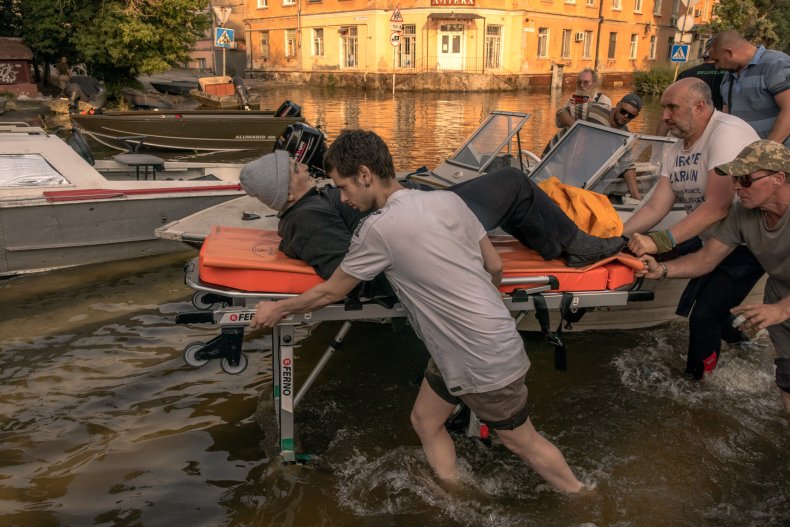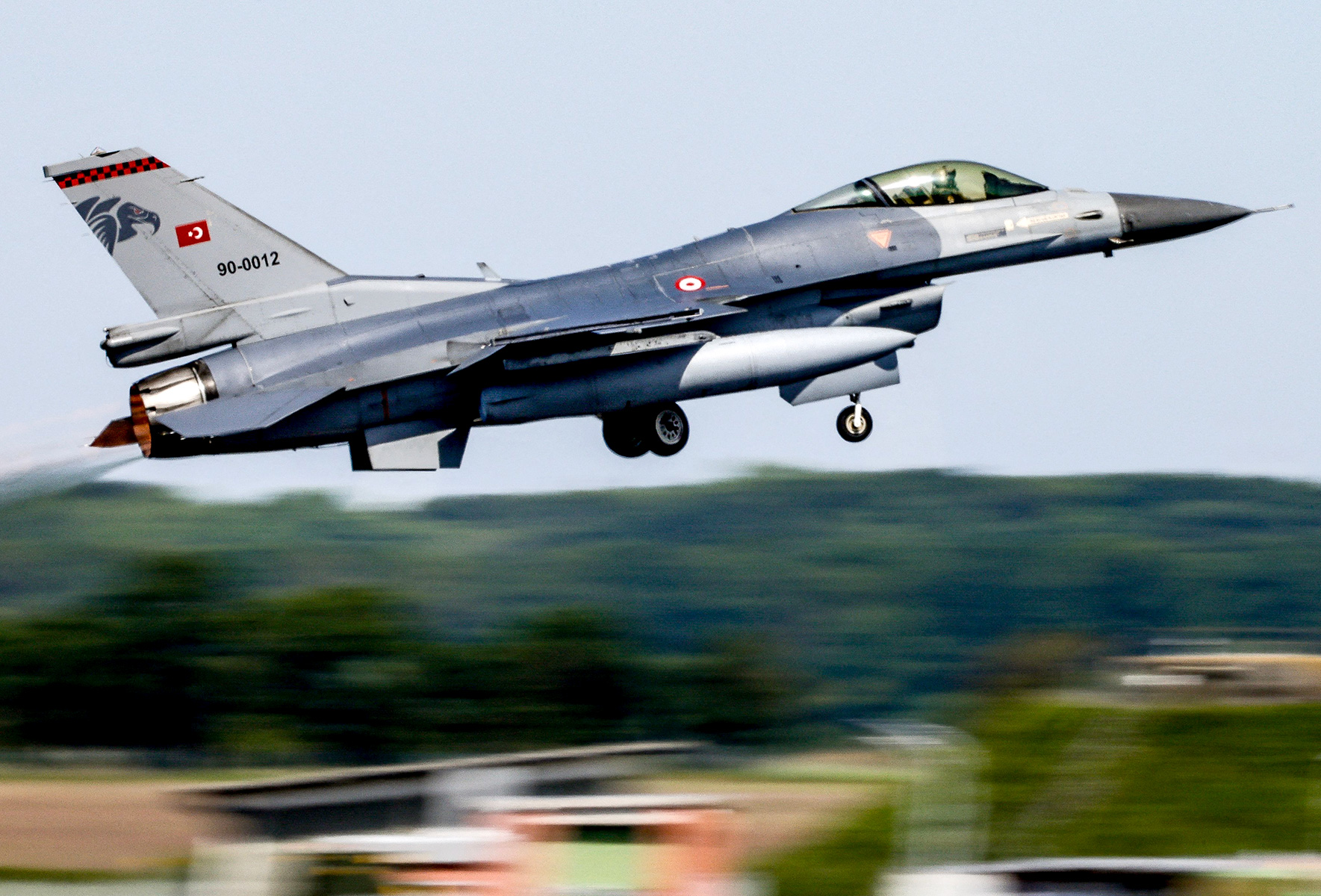A rescuer evacuating people trapped in floodwaters caused by the destroyed Kakhovka Hydroelectric Power Plant (HPP) has told Newsweek efforts to get people to safety were being hampered by continued Russian shelling.
Ukraine has accused Russia of blowing up the dam on June 6, in an incident that has unleashed waters which have inundated more than 80 settlements in the Kherson region, and beyond, displacing tens of thousands of people.
Yuriy Farina, a captain of the Ukrainian Civil Defense Service in Kherson, said that his team had evacuated more than 3,000 people, many of whom were elderly or with disabilities. In many cases, they would be alerted to their plight by concerned relatives.

"There are some people who have died because of Russia's constant shelling of the city," he told Newsweek from Kherson, through a translator. "It's really hard to evacuate people because when the shelling starts, the rescuers have to go into a shelter to wait for it to stop."
"The Russians know where the rescue teams are located and sometimes deliberately shell those areas," he said, with the left side of the city particularly vulnerable.
Newsweek could not independently verify the claims and has contacted the Russian Defense Ministry for comment. Ukraine and Russia have accused each other of shelling people being evacuated from flood-hit Kherson.
Every evacuation has its own challenges, Farina said. One woman did not want to leave her house because she was worried about how her six cats and two dogs could accompany her. They were all taken to safety, as was another woman who was able to bring her aquarium and pet fish.
On Wednesday, the Kyiv regional military administration said that the water receded by another 12 inches in the Kherson region overnight, but 28 de-occupied settlements were still flooded. As of Wednesday, the average water level in the flooded areas was at 7 feet.
Kyiv has warned of an ecological disaster while the humanitarian group Project HOPE, one of several aid organizations in Kherson, has warned that the Dnieper River and surrounding land have been contaminated by chemicals and oils from the HPP.
In a statement to Newsweek, it said that flooding has dislodged landmines which also pose a danger to civilians and aid workers. "This disaster calls for a more robust and coordinated response from the international community," said Giorgio Trombatore, Project HOPE country director for Ukraine.
Meanwhile, Farina said that the full extent of victim numbers will only be known when the waters fully recede, especially as many vulnerable people have been unable to raise the alert.
He has called for international support through the Ukrainian government fundraising initiative, UNITED24, appealing for people to donate to help provide rescue vessels, motor pumps, flashlights and diving suits. "The scale of the disaster is huge," he said.








